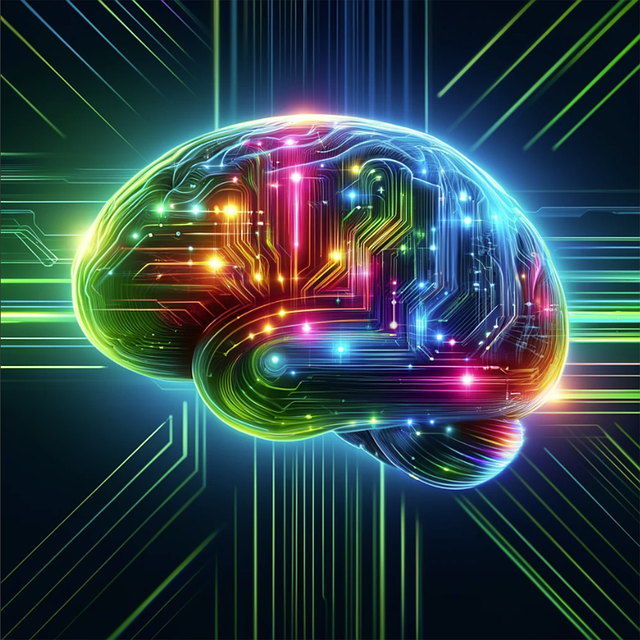
Artificial Intelligence (AI) is a revolutionary technology transforming industries and our daily lives. From smart assistants like Siri and Alexa to self-driving cars and personalized recommendations on platforms like Netflix, AI is making its mark everywhere. But how does AI actually work? In this article, we’ll break it down simply and explain the core concepts behind this fascinating field of technology.
What Is Artificial Intelligence?
Artificial Intelligence refers to the ability of machines or computers to mimic human intelligence. This includes learning from data, recognizing patterns, problem-solving, decision-making, and even understanding natural language. AI is designed to perform tasks that typically require human cognition, but it does so using algorithms and data rather than biological brains.
There are different types of AI, from simple systems that perform narrow tasks to more complex ones capable of general intelligence. We’ll focus on the key technologies and principles that drive AI’s functioning.
The Key Components of How AI Works
AI is powered by several key technologies that help it process information and make decisions. These components are:
- Machine Learning (ML) Machine Learning is a subset of AI that allows computers to learn from data and improve over time without being explicitly programmed. Instead of following pre-set rules, ML algorithms detect patterns in data and make predictions based on that knowledge.
- Supervised Learning: In supervised learning, an algorithm is trained on a labeled dataset, which means the data has predefined answers (labels). The AI learns to map input data to the correct output.
- Unsupervised Learning: In unsupervised learning, the algorithm finds patterns and structures in unlabeled data. It doesn’t know the output in advance, so it has to figure out the patterns by itself.
- Reinforcement Learning: This type of learning involves AI agents learning by trial and error. The AI receives feedback from its environment, typically in the form of rewards or penalties, to improve its behavior over time.
- Neural Networks Neural Networks are designed to mimic the way the human brain processes information. These networks consist of layers of nodes (also called neurons) that process input data, apply various functions, and pass it through multiple layers to make predictions or decisions.
- Deep Learning: A more advanced subset of machine learning, deep learning uses large neural networks with many layers. Deep learning is particularly effective in tasks like image recognition, natural language processing, and even game-playing AI like AlphaGo.
- Natural Language Processing (NLP) NLP allows machines to understand, interpret, and generate human language. It’s what powers voice assistants like Siri or chatbots that respond to customer inquiries. NLP is a complex process that involves several steps, such as tokenization (breaking text into smaller pieces), part-of-speech tagging, and sentiment analysis.
- Computer Vision Computer vision enables machines to interpret and understand visual information from the world, such as images or videos. It’s used in applications like facial recognition, object detection, and autonomous vehicles. AI systems use algorithms that analyze pixels in an image to identify objects, people, and environments.
How Does AI Learn?

AI systems learn through data. The process of teaching AI to perform tasks is known as training. Here’s how it works:
- Collect Data: The first step in building an AI system is gathering a large dataset. The quality of the data is crucial because AI models learn from this information. For example, an AI that recognizes cats in photos needs thousands of labeled images of cats.
- Preprocess Data: Once the data is collected, it needs to be cleaned and preprocessed. This can involve removing irrelevant information, normalizing values, and handling missing data to ensure that the model learns effectively.
- Train the Model: After preprocessing, the data is fed into a machine learning algorithm to create a model. The model adjusts its internal parameters to reduce the error in its predictions. This step is repeated many times until the model is accurate enough.
- Evaluate the Model: Once the model is trained, it’s tested with new data to see how well it performs. If the performance isn’t satisfactory, the model can be fine-tuned or retrained with additional data.
- Deploy and Monitor: Once the model performs well on test data, it’s deployed in real-world applications. AI systems are constantly monitored to ensure they are working effectively and to retrain them as new data becomes available.
Real-World Applications of AI
AI is not just a buzzword; it’s being used in numerous industries with impressive results. Some key applications include:
- Healthcare: AI assists doctors in diagnosing diseases, analyzing medical images, and even predicting patient outcomes. It can analyze vast amounts of medical data far faster than humans, offering timely insights.
- Finance: AI helps detect fraud, predict stock trends, and automate customer service in the financial industry. Algorithms are also used to analyze market data and optimize trading strategies.
- Retail: E-commerce platforms use AI for personalized product recommendations, inventory management, and customer support. Amazon and other retailers leverage AI to predict customer preferences and suggest items accordingly.
- Transportation: Autonomous vehicles (self-driving cars) rely on AI to navigate roads, avoid obstacles, and make real-time decisions. AI is also used in logistics to optimize delivery routes.
Challenges and Ethical Considerations
As AI becomes more integrated into our lives, it raises ethical questions and challenges. For example:

- Bias in AI: If AI systems are trained on biased data, they can learn and perpetuate those biases. For example, facial recognition technology has been shown to perform poorly on certain demographics, which raises concerns about fairness and equality.
- Job Displacement: Automation through AI has the potential to replace jobs, particularly in fields like manufacturing and customer service. This brings up concerns about job security and the need for retraining workers.
- Privacy Concerns: AI systems often rely on large amounts of personal data to function effectively. This raises concerns about how data is collected, used, and protected.
The Future of AI
The potential of AI is immense. As AI technologies continue to evolve, we can expect even more advanced systems capable of performing tasks that were once thought to be purely human. From AI-driven creativity (like art and music) to more effective healthcare solutions, AI promises to be a cornerstone of future innovation.
However, we must also be mindful of the challenges that come with it. Balancing technological advancement with ethical considerations will be key to ensuring that AI serves humanity in a positive way.
Conclusion
Artificial Intelligence is an exciting and rapidly growing field that is transforming the way we interact with the world. By learning from data, understanding patterns, and making decisions, AI systems can perform tasks that were once considered exclusively human. As we continue to harness the power of AI, we’ll see even greater advancements that could reshape industries, improve our lives, and create new possibilities.





